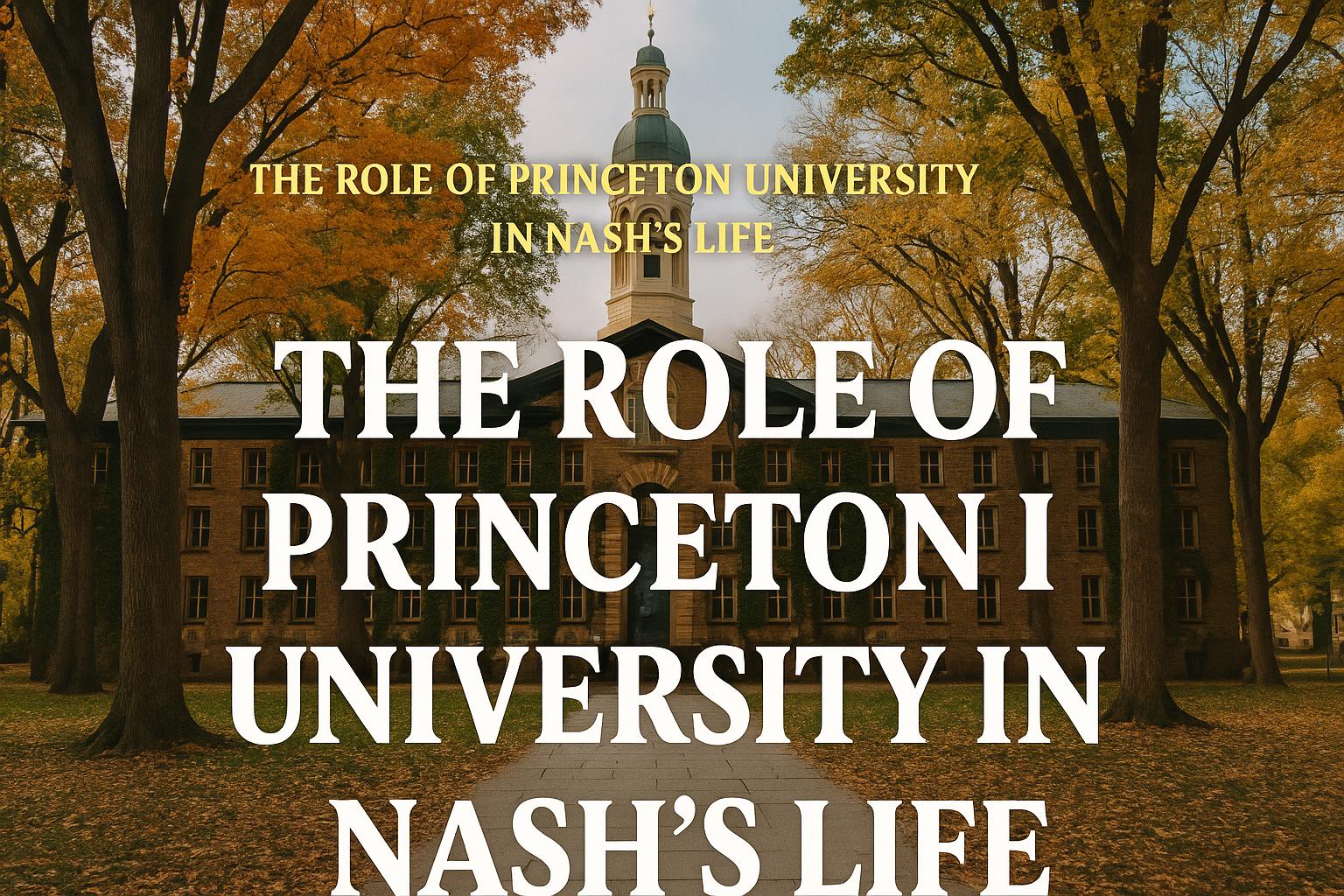The Role of Princeton University in Nash’s Life
Princeton University played a central role in shaping the life and career of John Nash, an esteemed mathematician whose pioneering work has had a lasting impact on economics and mathematics. Renowned for his development of the Nash Equilibrium, Nash’s contributions significantly influenced strategic thinking within these fields.
Educational Beginnings
Nash’s journey with Princeton began in 1948 when he commenced his doctoral studies in mathematics. At the time, Princeton was a preeminent hub for mathematical research, attracting some of the brightest minds in the field. This intellectually invigorating environment provided Nash with a unique opportunity to engage with complex mathematical concepts and innovative ideas. The prestige and resources of the Princeton Graduate School offered him an exceptional platform to hone his skills, equipping him to tackle intricate problems with novel approaches.
At Princeton, Nash was immersed in a community that fostered intellectual rigor and encouraged pioneering research. The diverse perspectives and collaborative opportunities available enabled him to refine his thinking and explore areas of mathematics that were both challenging and rewarding. The university served as a crucible for his early ideas, allowing him to germinate his groundbreaking theories in an atmosphere conducive to academic excellence.
Nash’s Doctoral Thesis
While at Princeton, Nash crafted his seminal thesis on non-cooperative games. His work in game theory, particularly the Nash Equilibrium, redefined the methodologies by which economists and strategists perceive competition and cooperation. The Nash Equilibrium introduces a scenario in a strategic game where each participant’s strategy is optimal, given the strategies employed by others. This paradigm not only enriched economic theory but also offered profound insights into strategic decision-making across disciplines. Nash’s contributions in this realm were recognized with the Nobel Prize in Economic Sciences in 1994, underscoring the transformative impact of his research.
Nash’s thesis was emblematic of Princeton’s role in fostering innovative scholarship. By supporting Nash’s exploration of non-cooperative games, the university underscored its commitment to nurturing intellectual curiosity and facilitating discoveries that transcend disciplinary boundaries. His work illuminated the intricate dynamics of competitive interactions, thus broadening the horizons of both theoretical and applied mathematics.
Professional and Academic Ties
Nash’s association with Princeton extended beyond his doctoral studies, as he assumed teaching and research positions within the university. Despite facing significant personal challenges, including struggles with mental illness, Nash found Princeton to be a supportive haven during the trials of his career. The university’s commitment to providing a nurturing community played a pivotal role in Nash’s journey of recovery and reintegration into the academic sphere.
As an institution, Princeton facilitated Nash’s continued engagement with the academic world. The university hosted a range of events and lectures featuring Nash, offering him platforms to share his insights and collaborate with emerging academics. These interactions provided Nash with a renewed sense of purpose and opportunity to further his work.
Nash’s Legacy at Princeton
Nash’s bond with Princeton persisted even as his professional paths diverged. The university’s recognition of his achievements through various accolades exemplified its dedication to honoring its distinguished alumni. By celebrating Nash’s mathematical endeavors, Princeton acknowledged his contributions to the field and highlighted the importance of scholarly excellence.
Preserving Nash’s legacy became a priority for Princeton, with the institution actively archiving his papers to ensure that his contributions remain accessible to future generations. These efforts underscore Princeton’s commitment to fostering a continued dialogue around Nash’s work and its broader implications. The university’s focus on sustaining intellectual engagement exemplifies the enduring significance of Nash’s research within the academic community.
Conclusion
For John Nash, Princeton University was much more than an academic institution; it was a cornerstone in his life, providing the support and inspiration necessary to develop theories that have reshaped economics and mathematics. Through its continuous association with Nash, Princeton has demonstrated the pivotal role academia can play in cultivating groundbreaking research and fostering intellectual advancement. Nash’s journey reflects Princeton’s broader mission of nurturing innovations that propel knowledge forward, ensuring that the legacy of pioneering thinkers such as Nash continues to inspire future generations of scholars.
This article was last updated on: October 9, 2025

